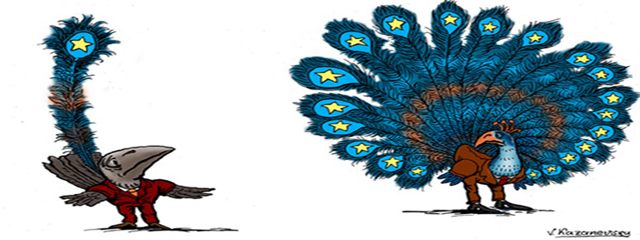More than 130 years ago, on March 11, 1882, the French philosopher and polemist Ernest Renan gave a speech at the Sorbonne that was to have a long lasting impact. It was entitled, Qu’est-ce qu’une nation?, or “What is a nation?”. “A nation is […] a great solidarity constituted by the feeling of sacrifices made and those that one is still disposed to make”.
There are still European philosophers and politicians, especially in Brussels, who would prefer to brush away the nation state as an obsolete and even dangerous 19th Century myth. They see the crisis as a means to now finally making a great leap forwards; they still dream of a European federation. If you apply Renan’s clear account to our continent, however, then – even half a century later after laying the foundations of the EU – there is still little to be seen of such a European nation. If anything has been damaged by the crisis and the subsequent extreme austerity drive, then it is that very solidarity and willingness to continue a common life that Renan stressed.
That is not all, though. The problem with all those great European dreams is that in rejecting the nation state, the importance of the “place” factor is also generally disregarded. The semi-illegal unpasteurised cheeses at the market in Dieppe, the smoky café without any toilets in the Hungarian village of Vasarosbec, Bruges’ chocolate, the solar panels in Neukirch, the metro construction in Amsterdam… what has not been suffocated in the hailstorm of well-intended regulations from Brussels?
Read the whole article here.






Be the first to comment on "‘This crisis will be followed by a European Renaissance’"